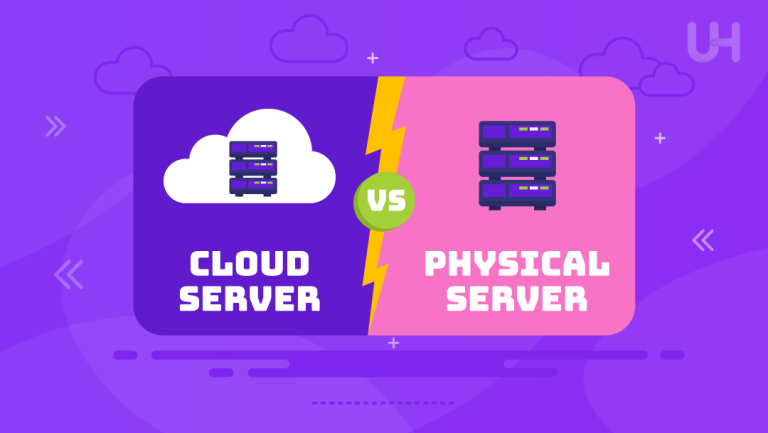Shared hosting is the most common web hosting solution among individuals and small business owners. More than one website shares a server and, in turn, its storage, bandwidth, and memory. This is often the most cost-effective and user-friendly option, which makes it ideal for new website owners.
In web hosting, shared hosting involves dividing the server’s resources among several users to share the cost. This again reduces the cost but limits performance and customization compared to other hosting options. The article looks at how shared hosting works, the major features involved, the benefits and limitations of the system, and how it compares to other hosting options.
In shared hosting, many websites are available on one single physical server. Each website shares the server’s resources, like CPU, RAM, disk space, and bandwidth. The server, operated by the hosting provider, runs smoothly and distributes resources to various websites based on their usage needs.
Owners of websites running on shared hosting plans usually have very limited access to the backend of the server and have to rely on performing most basic administrative tasks through a control panel. This sharing of resources enables low costs; however, it does mean that performance can suffer if one site suddenly sees a spurt in traffic or is hogging too much of the server’s resources.
- Low-Cost: This is one of the most inexpensive hosting options. It is great for those just starting out, small businesses, and personal websites.
- Managed Server Maintenance: The hosting provider will attend to the management of the server, including updating the software, securing it, and attending to technical support while allowing the user to attend to their website.
- Limited Customization: Under shared hosting, server settings are considerably limited; the user can be confined to a preselected set of software and configurations.
- Resource Pooling: Server resources are pooled, with CPU, RAM, and bandwidth shared. The resources are divided between all sites hosted on that server. This impinges on performance when unexpected traffic is seen on one or more of your shared sites.
- Affordability: Shared web hosting is cheaper than all other options for web hosts. That makes it ideal for start-ups, small businesses, and personal projects because these usually have a very slim budget.
- Ease of Use: Most shared hosting plans include user-friendly control panels, such as cPanel, through which users, even with limited technical knowledge, can easily manage a website.
- Maintenance-Free: This eliminates a lot of backend operations for the users as the service provider handles all the server maintenance, security patches, and periodic updates at regular intervals by the particular hosting provider.
- Scalability for Beginners: It allows users to easily upgrade to higher-tier plans or different hosting types if their website’s traffic and complexity grow.
- Fluctuation in Performance: When one website gets very high traffic or visitors, shared server resources make other websites running on the same server run slower due to unbalanced performance.
- Limited Resources: Users get a fixed bandwidth, storage, and processing power, which may not be sufficient for bigger or high-traffic websites.
- Lack of Control: Clients have less access to server configuration and settings in shared hosting. This reduces their capacity to customize or optimize the server environment as they need.
- Security Risks: Sharing a single server among many websites enhances vulnerability to security breaches in one website.

Shared hosting and VPS hosting have some differences. With shared hosting, the server divides among many websites. Because of that, it is cheaper, but since one website uses up too many resources, that can affect the general performance. VPS stands for Virtual Private Server. It is much more powerful since it provides every user with a virtual partition of a physical server, hence allowing top performance and providing more control, but at the same time, it costs more.
There is a difference between shared hosting and dedicated hosting. Dedicated hosting means having a whole server for only one user’s account, giving maximum control, performance, and customization. On the other hand, shared hosting is much cheaper but significantly compromises flexibility and performance since it shares server resources among a couple of users.
Affordable Solutions To Grow Your Online Presence!
Choose UltaHost for reliable and affordable shared hosting. With top-notch security, excellent performance, and scalable plans, UltaHost is perfect for beginners and small businesses looking to grow their online presence without breaking the bank.
This works great for people and small outfits with relatively small budgets and a lack of technical experience. It’s ideal for those starting out who seek to rapidly deploy a website online at an affordable cost without server management overhead. Shared hosting is extremely friendly and cost-effective for blogs, personal sites, small e-commerce stores, and portfolios.
This hosting would be ideal for low to medium-traffic websites that do not demand high performance or extended customization of any type. Whenever you realize growth on the website, there is always an opening for users to upgrade to bigger, robust hosting options that can handle increasing traffic and resource demands.
Cost Efficiency
This is one of the most affordable kinds of hosting, which is why it’s so popular for beginning users and small businesses. Since multiple websites host their sites on a single fast server, the individual user’s cost will be minimal because all of them will share one server’s maintenance and operation costs.
Shared hosting plans are often available for a flat monthly or annual fee, and they range from as low as a few dollars each month. Such affordability makes it possible for users to establish an online presence without the financial burden of dedicated, cloud or VPS hosting. However, low cost does not cut into the feature list since shared hosting accommodates the essential features one needs to run a basic website effectively.
Security Considerations
- Shared Vulnerabilities: This vulnerability involves websites hosted on the same server. If somebody compromises a website, this act may expose the virus or even hack into other websites operating on that server.
- Limited Security Controls: The users have limited access to the server configuration, which restricts them from using advanced security measures. They then heavily rely on protection systems set by the hosting provider.
- SSL Certificates: Most plans support many types of SSL certificates, which guarantee secure data privacy. This is a mandatory condition for making your website encrypted, especially for e-commerce sites.
- Security Hosting Provider: Most hosting providers include firewalls, DDoS-secured servers, and even normal security patches, but these depend on the security protocols followed by the provider.
Performance Impact
In shared hosting, a website’s performance directly depends on the number of other websites drawing on the resources of the same web server. The very moment another site gets higher traffic or consumes one of the too many CPU, memory, and bandwidth resources, that eventually slows others down on that server.
It leads to slower loading of web pages and erratic performance when several websites face heavy incoming traffic. Further, the hosting provider often puts resource limits in place to prevent any site from dominating server resources, but these further limits can impact performance as your website grows. While shared hosting is sufficient for smaller sites, it may not hold up to high-traffic websites.
When you choose one of these shared hosting options, first evaluate your website needs: predict traffic, storage, and the type of content you will host. Then, check the provider’s scalability so that upgrading is seamless with your site’s growth.
Ensure that the hosting plan includes essential features including SSL certificates, automatic backups, and an intuitive control panel, specifically cPanel. Check their reputation for uptime reliability and customer support, as these two are key features in ensuring a generally pleasant online experience. Compare pricing, but don’t go for the cheapest right away; instead, balance the cost with the quality of service and features offered.
Conclusion
Shared hosting is very suitable for individuals, small businesses, and those with limited budgets seeking to establish an online presence. Its reasonable cost and usability make it the most desirable because there is no need to be concerned about system administration. However, shared hosting is afflicted with performance, security, and resource allocation shortcomings since the server is exposed to a lot of load. Lastly, depending on the growth of your site, a more robust hosting solution may be needed.
If you’re ready to take your hosting to the next level, consider UltaHost’s Reseller Hosting. It allows you to easily manage multiple websites, providing more control and the opportunity to generate income by offering hosting services.
FAQ
What is shared hosting?
Shared web hosting is a form of web hosting in which more than one website shares the same pool of resources on a single server to lower costs.
Who should use shared hosting?
Shared hosting is recommended for beginners, small businesses, and personal websites that receive low to moderate traffic.
How shared hosting affects website performance
As the resources are shared, a high volume in one site will negatively affect the performance of the others hosted on that server.
Is shared hosting secure?
Although each web hosting provider provides security, shared servers are bound to be in danger when one website is compromised.
Can I upgrade from shared hosting?
Most providers would only too easily upgrade VPS or dedicated hosting as one’s website grows; including UltaHost.
How much will shared hosting cost?
Shared hosting is one of the cheapest ways of web hosting, from a few dollars monthly.
What should I look for in shared hosting?
When you select a plan, the key features to look for include SSL certificates, backups, uptime reliability, and customer support.















